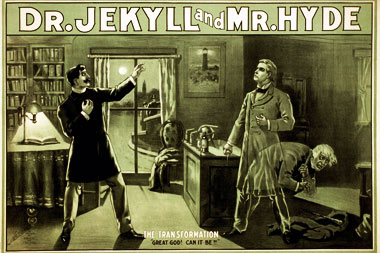Unemployment makes us mean, study finds

People who struggle to find work develop a more negative personality, according to research
Jermaine Haughton
Unemployment doesn’t just knock a person’s confidence – it also triggers changes in the personality that can make someone meaner and less friendly, according to new research from the University of Stirling. According to the institute’s behavioural scientists, the preconception that personality remains unchanged across time is not necessarily true, if particular circumstances are taken into account.
Their research showed that the experience of unemployment led to reduced levels of:
1. Conscientiousness
2. Agreeableness and
3. Openness
…all of which signified that individuals lose motivation, become less considerate and sympathetic, and far less curious about the world around them.
Ironically, those personality changes actually harm unemployed people’s prospects of getting a new job, thereby exacerbating the problem. As such, the researchers have urged for greater external support for the unemployed to prevent the onset of such negative personality shifts.
The results make interesting reading for British employers and staff, as the latest job statistics in the UK show the employment rate is currently 5.7%. – despite 608,000 more people having jobs compared to a year ago.
University of Stirling boffin Dr Christopher Boyce said: “The results challenge the idea that our personalities are ‘fixed’ and show that the effects of external factors such as unemployment can have large impacts on our basic personality. This indicates that unemployment has wider psychological implications than previously thought.”
Researchers assessed five major personality traits – conscientiousness, neuroticism, agreeableness, extraversion and openness – via a survey sample of 6,769 German adults, 210 of which were unemployed for between one to four years. A further 251 of the sample were jobless for under a year.
The analysis showed that men became less pleasant and conscientious after two years of unemployment, while women were more conscientious in early and late stages of joblessness. However, they experienced a slump in the middle of the study.
The longer men were unemployed after a one year, the more secretive and detached they became. Conversely, women became less open in the second and third years of unemployment, but improved in the fourth.
“In early unemployment stages,” the researchers wrote, “there may be incentives for individuals to behave agreeably in an effort to secure another job or placate those around them. But in later years when the situation becomes endemic, such incentives may weaken.”
Most importantly, the study tells employers and authorities that the effect of unemployment is more than just financial – with many jobless people feeling stigmatised. With that in mind, experts suggest that public policy must be adapted to help prevent adverse personality change in society, through both lower unemployment rates and the provision of greater support for the unemployed.
Dr Boyce added: “A high national unemployment rate may have significant implications across society. For example, high unemployment may hinder the development of desirable social and economic behaviours, such as participation in social activities and better health behaviours.
“Policies to reduce unemployment are therefore vital not only to protect the economy but also to enable positive personality growth in individuals."
For thoughts on enhancing your confidence, sign up to this CMI seminar.
Image of Jekyll and Hyde poster courtesy of Everett Historical / Shutterstock.

Press & Media Enquiries
For more information or to request interviews, contact CMI's Press Team on 020 7421 2705 or email press.office@managers.org.uk


